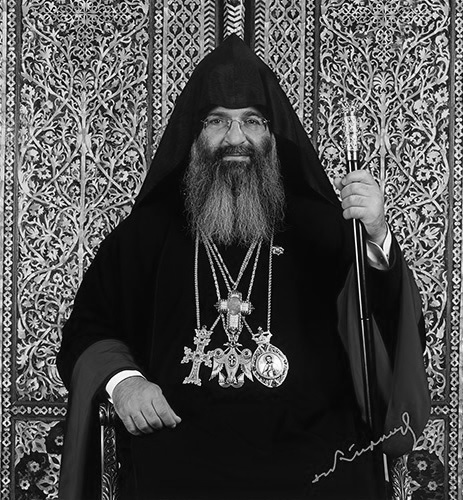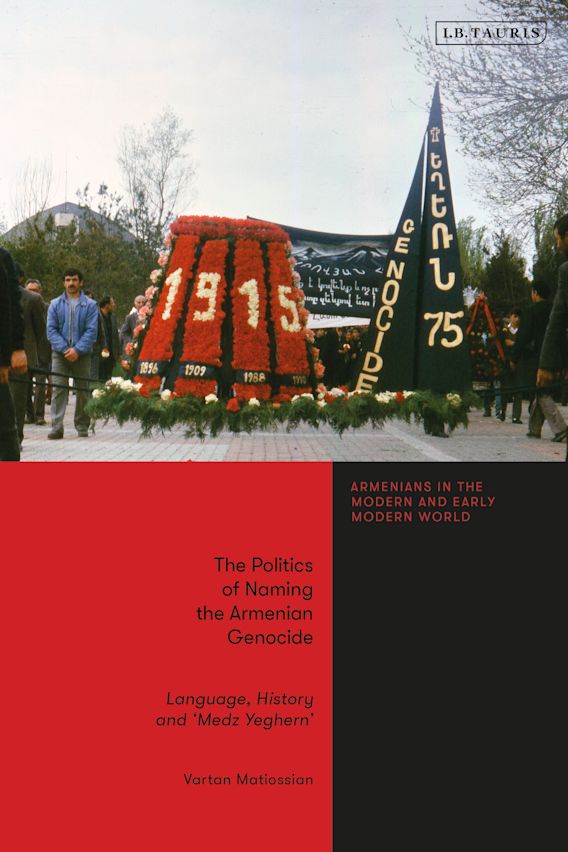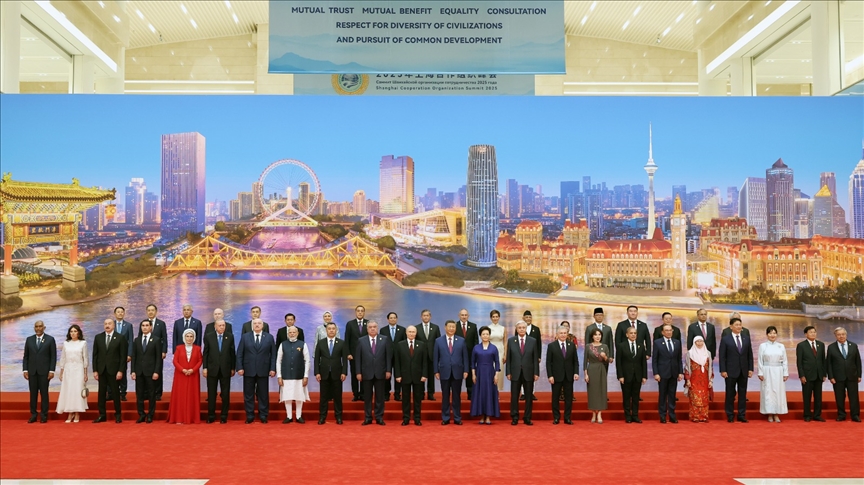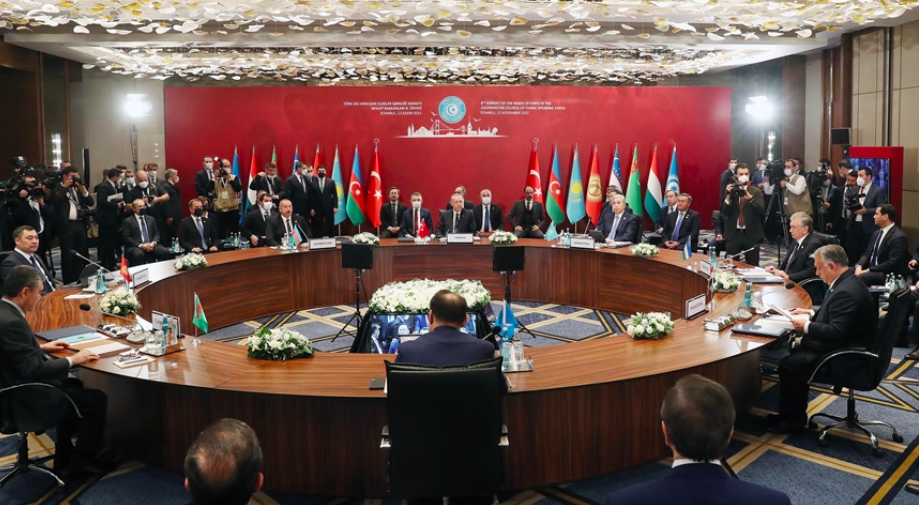
AVIM
16.04.2015
As expected, the year 2015 is witnessing increasing propaganda of the Armenians and their advocates to persuade the global public opinion that the 1915 events were a genocide and Republic of Turkey is responsible to remedy the results, which implies compensations and territorial rearrangement between Armenia and Turkey. In pursue of that, Armenian state and different organizations in Armenia and diaspora have already begun their propaganda activities. Publication of popular and academic history books are among those activities.
In October, 2014, Biteback Publishing Company published Geoffrey Robertson’s An Inconvenient Genocide: Who Now Remembers the Armenians?. In essence, this book is not different from other books written by Armenian propagandists and their protégés. Yet, what differentiates this book from the others is the reputation of its author, however, not as a historian, but as a counsel, which is likely to attract the attention of the bookworms to his book. Therefore, a review of this book is necessary to display its faults that eventually prove that it is another popular, unscientific piece of propaganda.
Jeremy Salt, a retired lecturer at Bilkent University, has written an essay titled “A Lawyer’s Blundering Foray into History” on Mr. Robertson’s book. This essay was published in its totality few days ago in Review of Armenian Studies. Yet, with the permission of Mr. Salt, we would like to present excerpts from his essay for the impatient readers. What follows are these excerpts.
“Mr Robertson’s problems begin with the front cover. ‘Who now remembers the Armenians?’ refers to a statement allegedly made by Hitler on the eve of the invasion of Poland, yet in three versions of the speech admitted as evidence at the Nuremberg tribunal there is no mention of the Armenians”.
“Having begun his book by referring to a statement Hitler probably never made, Mr Robertson proceeds to examine Ottoman history as a prelude to what happened in 1915. He does not begin with a survey of conditions in eastern Anatolia on the eve of the war. This is the essential context for anyone who wants to get to the truth of what happened to the Armenians during the war (except for those who think they know the truth)”.
“His account of Muslim-Christian relations paraphrases attempts by propagandists to break down the truth of the ‘ancient symbiosis’ - the phrase of the Armenian historian Avedis Sanjian – between Muslims and Christians until the 19th century came along...
The ‘ancient symbiosis’ began to disintegrate in the 19th century, but rather than look for reasons peculiar to the time and circumstances, Mr Robertson presents the unraveling of Muslim-Christian relations as being part of an endless historical cycle of discrimination against the Armenians. His ‘facts’ are unreliable…”
“In dealing with the First World War, Mr Robertson’s authorities include the British Prime Minister, David Lloyd George, and his Foreign Secretary, Arthur James Balfour…Lloyd George was a principal architect of the Greek invasion of Anatolia in 1919, described by Arnold Toynbee as a ‘war of extermination’ of the Turks”.
“Robertson also relies heavily on the parliamentary ‘Blue Book’ prepared by James Bryce and Arnold Toynbee. In 1878 Bryce had founded the Anglo-Armenian Association…A key figure in the ‘Armenian agitation’ of the 1890s...Toynbee was his right hand man and appears to have done most of the spade work”.
“Robertson also relies heavily on the memoirs of Henry Morgenthau...Morgenthau never visited eastern Anatolia, remaining heavily dependent on missionaries and his Armenian informants for what he passed on to others….
Schreiner almost certainly had Morgenthau in mind when he wrote in The Craft Sinister: ‘It is to be hoped that the future historian will not give too much heed to the drivel one finds in the books of diplomatist-authors. I at least have found these books remarkably unreliable on the part played by the author. It would seem that these literary productions are on a par with the ‘blue books’ published by governments for the edification of the public and their own amusement …’”
“Of his other sources, Mr Robertson makes use of Peter Balakian, whose book, The Burning Tigris, the late Andrew Mango concluded in his review, was ‘not a work of historical research’: some of his assertions, wrote Mango, ‘would make any serious Ottoman historian’s hair stand on end.’ Other sources include the Armenian historian-as- propagandist Vakahn Dadrian and his Turkish protégé, Taner Akçam.”
“Moving to specific events, Mr Robertson deals with the arrest of Armenians in Istanbul on April 24 1915. He writes that several hundred Armenians were arrested on that night and ‘transported in ships to military prisons near Ankara’. How this was possible when Ankara is hundreds of kilometers from the nearest coast, he does not say”.
“Mr Robertson argues that ‘up to’ two million Armenians were ‘deported’ and that about a million died. In fact, the Armenians were not ‘deported’ but moved within the borders of the Ottoman state. The figure of two million is a wild exaggeration if only because there were not two million Armenians in all the lands of the Ottoman Empire in the first place.”
“The importance of [the trials of the Ottoman officials and civilians that engaged in attacks and pillage on the Armenians] is downplayed by all Armenian propagandists because they subvert the core of accusations made against the Ottoman government. Mr Robertson mentions them only to dismiss their significance.”
“His favored sources are ‘eminent’ and ‘respected’ while those who don’t share his views are ‘denialists’ a word he archly claims is descriptive and not pejorative. The bishops and priests of the Star Chamber used exactly the same line of argument against heretics burnt at the stake for ‘denying’ the existence of God. Justin McCarthy is one of them. Here is someone who has spent his entire academic life studying Ottoman history being abused (‘denialist’) by a man who demonstrates time and again that he knows little of this history outside propaganda and historical clichés”.
“Turks have a saying: a fool throws a stone into a well and it takes 40 wise men to pull it out. Mr Robertson is no fool but has still thrown yet another stone into a well already filled with them. He talks authoritatively of the ‘existing evidence’ and the ‘facts’ when the central fact in his collection of ‘facts’ is that he does not know the history well enough to pass judgment on it. But he is Geoffrey Robertson, QC, after all, and his reputation along with the general ignorance and gullibility of reviewers and readers will save him from the obloquy this book deserves.”
© 2009-2025 Center for Eurasian Studies (AVİM) All Rights Reserved
No comments yet.
-
 THE PASSING AWAY OF THE ARMENIAN PATRIARCH OF ISTANBUL MESROP II AND THE NEW PATRIARCH ELECTION PROCESS
THE PASSING AWAY OF THE ARMENIAN PATRIARCH OF ISTANBUL MESROP II AND THE NEW PATRIARCH ELECTION PROCESS
AVİM 27.03.2019 -
 AVIM WEBINAR VIDEO REMOVED FROM A SOCIAL MEDIA PLATFORM HAS BEEN REINSTATED
AVIM WEBINAR VIDEO REMOVED FROM A SOCIAL MEDIA PLATFORM HAS BEEN REINSTATED
AVİM 27.06.2022 -
 POLITICALLY CHARGED ACTIONS BLANKET HISTORICAL EVENTS
POLITICALLY CHARGED ACTIONS BLANKET HISTORICAL EVENTS
AVİM 01.12.2017 -
 THE POLITICS OF NAMING THE 1915 EVENTS
THE POLITICS OF NAMING THE 1915 EVENTS
AVİM 18.11.2021 -
 AN OVERVIEW OF THE YEAR 2024
AN OVERVIEW OF THE YEAR 2024
AVİM 31.12.2024
-
 THE DOCUMENTS EXPOSING CHINA’S HUMAN RIGHTS VIOLATIONS
THE DOCUMENTS EXPOSING CHINA’S HUMAN RIGHTS VIOLATIONS
Şevval Beste GÖKÇELİK 27.12.2021 -
 TIANJIN SUMMIT OF THE SHANGHAI COOPERATION ORGANISATION
TIANJIN SUMMIT OF THE SHANGHAI COOPERATION ORGANISATION
Seyda Nur OSMANLI 04.11.2025 -
 RUSSIA QUESTIONS 'UNUSUAL' UKRAINE ELECTION
RUSSIA QUESTIONS 'UNUSUAL' UKRAINE ELECTION
Hande Apakan 06.05.2014 -
 FROM TURKIC COUNCIL TO ORGANIZATION OF TURKIC STATES
FROM TURKIC COUNCIL TO ORGANIZATION OF TURKIC STATES
Şevval Beste GÖKÇELİK 22.11.2021 -
 THE IMPORTANCE OF EU-CHINA AGREEMENT FOR TURKEY AND THE UK
THE IMPORTANCE OF EU-CHINA AGREEMENT FOR TURKEY AND THE UK
Şevval Beste GÖKÇELİK 16.03.2021
-
25.01.2016
THE ARMENIAN QUESTION - BASIC KNOWLEDGE AND DOCUMENTATION -
12.06.2024
THE TRUTH WILL OUT -
27.03.2023
RADİKAL ERMENİ UNSURLARCA GERÇEKLEŞTİRİLEN MEZALİMLER VE VANDALİZM -
17.03.2023
PATRIOTISM PERVERTED -
23.02.2023
MEN ARE LIKE THAT -
03.02.2023
BAKÜ-TİFLİS-CEYHAN BORU HATTININ YAŞANAN TARİHİ -
16.12.2022
INTERNATIONAL SCHOLARS ON THE EVENTS OF 1915 -
07.12.2022
FAKE PHOTOS AND THE ARMENIAN PROPAGANDA -
07.12.2022
ERMENİ PROPAGANDASI VE SAHTE RESİMLER -
01.01.2022
A Letter From Japan - Strategically Mum: The Silence of the Armenians -
01.01.2022
Japonya'dan Bir Mektup - Stratejik Suskunluk: Ermenilerin Sessizliği -
03.06.2020
Anastas Mikoyan: Confessions of an Armenian Bolshevik -
08.04.2020
Sovyet Sonrası Ukrayna’da Devlet, Toplum ve Siyaset - Değişen Dinamikler, Dönüşen Kimlikler -
12.06.2018
Ermeni Sorunuyla İlgili İngiliz Belgeleri (1912-1923) - British Documents on Armenian Question (1912-1923) -
02.12.2016
Turkish-Russian Academics: A Historical Study on the Caucasus -
01.07.2016
Gürcistan'daki Müslüman Topluluklar: Azınlık Hakları, Kimlik, Siyaset -
10.03.2016
Armenian Diaspora: Diaspora, State and the Imagination of the Republic of Armenia -
24.01.2016
ERMENİ SORUNU - TEMEL BİLGİ VE BELGELER (2. BASKI)
-
AVİM Conference Hall 24.01.2023
CONFERENCE TITLED “HUNGARY’S PERSPECTIVES ON THE TURKIC WORLD"









